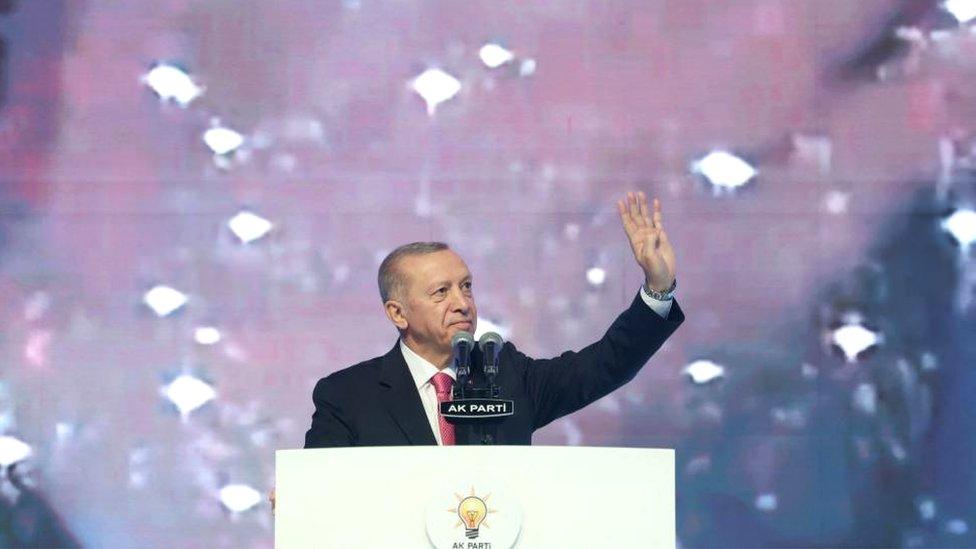Turkey's Erdogan falls ill on TV and cancels election rallies
- Published
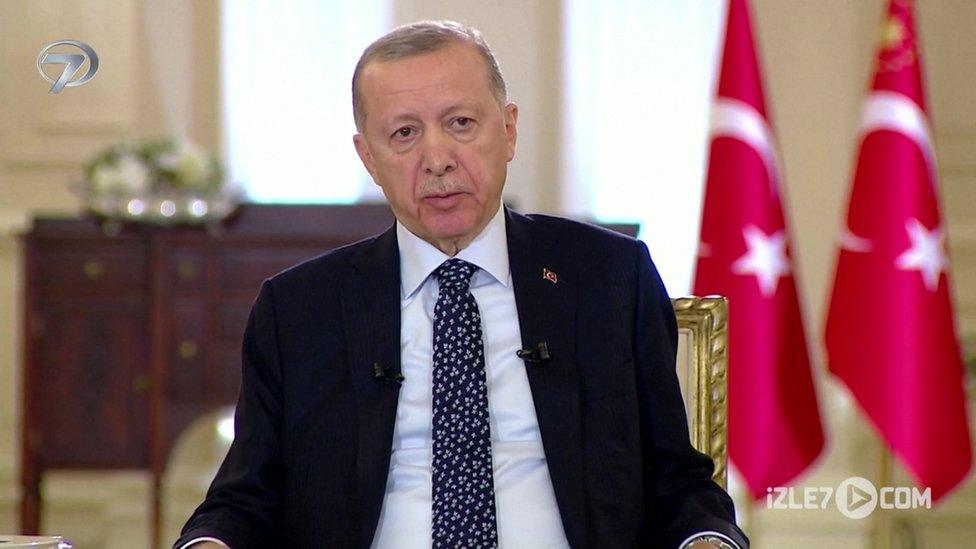
During Tuesday evening's live broadcast the screen went blank as it became clear President Erdogan was unwell
Turkish President Recep Tayyip Erdogan has suspended election campaigning after he fell ill during a live TV interview in which the broadcast was abruptly brought to a halt.
After a 20-minute break, he returned to say he had "serious stomach flu" after two days of intense campaigning.
Mr Erdogan, 69, is facing his toughest election campaign so far.
The main opposition leader Kemal Kilicdaroglu has been chosen to run for a group of six political parties.
He was among a number of opposition leaders to wish the president a speedy recovery.
Health minister Fahrettin Koca said on Thursday that the president's health was fine and that he had "infectious gastroenteritis". He said he would resume his scheduled daily programmes as soon as possible.
Latest polls suggest a close race for the presidency, with Mr Kilicdaroglu in with a good chance of electoral victory.
The first round takes place on 14 May, with a possible presidential run-off two weeks later.
President Erdogan initially cancelled three campaign appearances in central Anatolia on Wednesday, saying he had been advised to stay home on the advice of doctors.
He then cancelled his scheduled events on Thursday, too, including the opening of Turkey's first nuclear power station at Akkuyu on the Mediterranean coast.
Instead, a pale and tired-looking Mr Erdogan joined Russia's Vladimir Putin in taking part in the inauguration online.
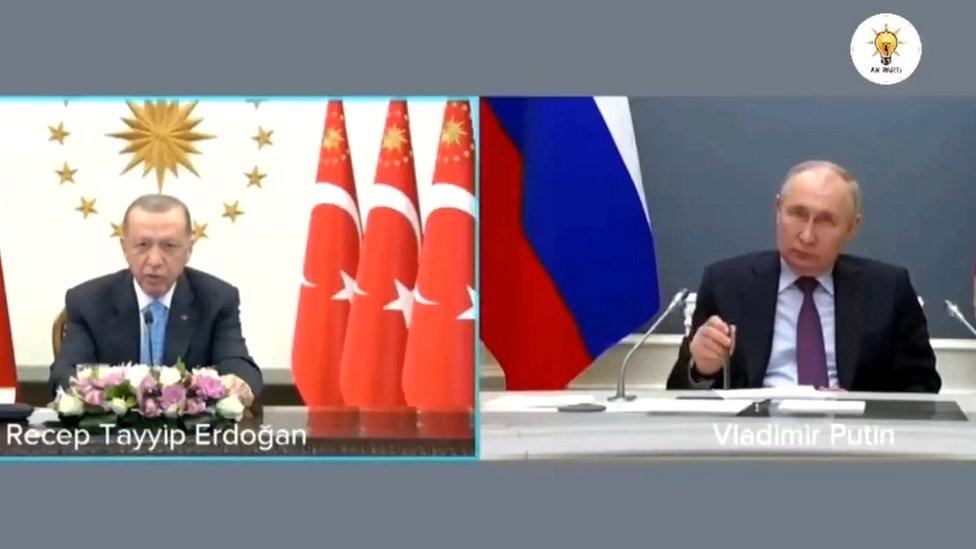
President Erdogan looked unwell and tired as he spoke during the inauguration ceremony of Akkuyu nuclear plant
Akkuyu's four nuclear reactors, largely owned by Russian firm Rosatom, have taken several years to build and the opening had been timed to coincide with the election.
The two leaders also spoke over the phone before the ceremony, with Moscow saying they had agreed to deepen economic and trade co-operation.
Several journalists were seated around President Erdogan when he fell ill during the live broadcast on Tuesday evening on pro-government channels Ulke TV and Kanal 7.
After one of the interviewers asked a question, the camera showed the journalist looking increasingly alarmed before the screen went blank.
Eventually Mr Erdogan returned to explain that he had earlier considered cancelling the programme. "Of course, we sometimes encounter such situations amid such busy work."
Within hours of the broadcast, speculation appeared on some social media accounts outside Turkey that Mr Erdogan had suffered a heart attack.
Mr Erdogan's head of communications Fahrettin Altun took to social media to "categorically reject such baseless claims" about the president's health, tweeting screen shots of the accounts spreading the allegations.
"No amount of disinformation can dispute the fact that the Turkish people stand with their leader and @RTErdogan and his AK Party are set to win the May 14 elections."
Mr Erdogan has been in power for 21 years and has fallen ill before during a live TV interview.
Weeks after surviving a botched coup in June 2016, he was taken ill for several minutes before returning to continue the interview. The broadcaster cut to an ad break.
In 2011 and 2012 he had gastro-intestinal surgery that fuelled speculation about his health.
Voting in parliamentary and presidential elections takes place on 14 May. If no presidential candidate wins more than half the vote there will be a second round two weeks afterwards.
Voting has already begun for the 3.3 million Turkish citizens abroad who have until 9 May to cast their vote.
In Germany some 1.5 million Turkish citizens are entitled to vote in polling stations in all 16 states. There are also large Turkish communities in France, the Netherlands and Belgium.
Mr Kilicdaroglu and his allies have promised to return Turkey to a parliamentary system, rolling back many of the changes brought in by Mr Erdogan, who steered Turkey to beefed-up elected presidency in 2018.
- Published25 May 2023
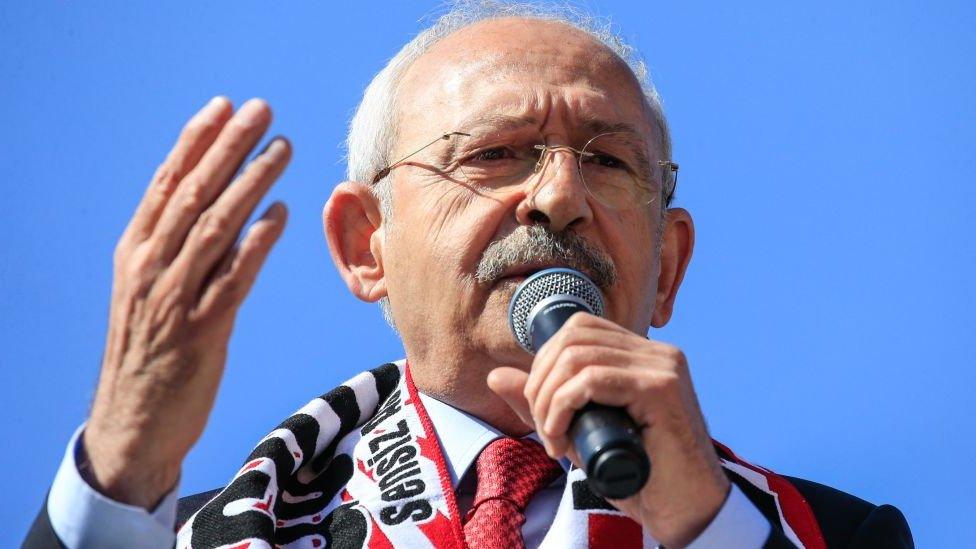
- Published25 April 2023
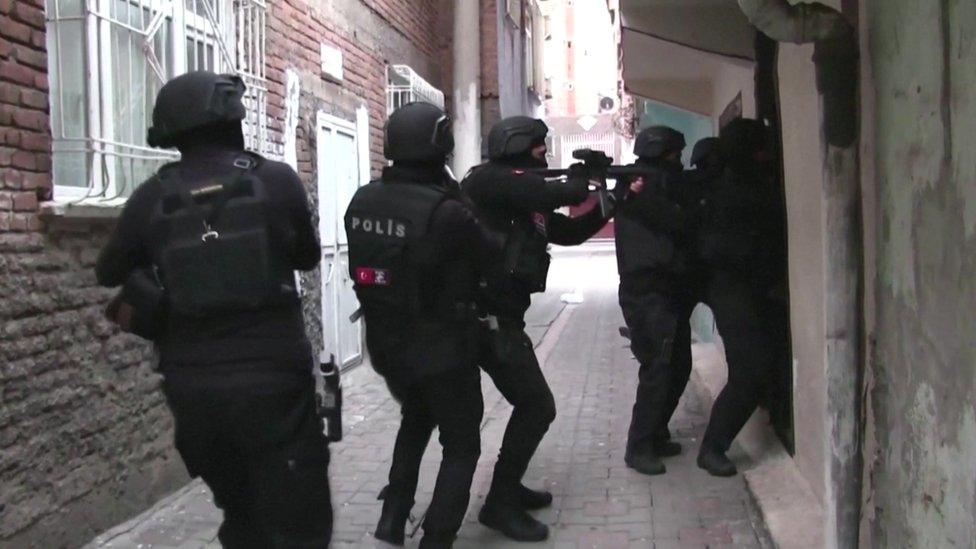
- Published23 May 2023
